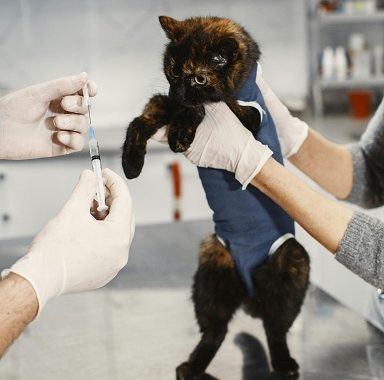
Pet owners often grapple with numerous decisions regarding the health and well-being of their furry companions. One such critical decision is whether or not to vaccinate their dogs.
While some may question the necessity of pet vaccines, it’s essential to understand the significant repercussions of not vaccinating your dog. In this article, we’ll delve into the truth about pet vaccines and address common queries surrounding this topic.
Is it Illegal to Not Vaccinate Your Dog?
In many places, it is a legal requirement to vaccinate your dog against certain diseases. Failure to comply with these regulations can result in legal consequences and penalties.
Laws regarding pet vaccination vary by region, but the underlying intention is to safeguard both animal and human health. By ensuring that dogs are vaccinated, authorities aim to prevent the spread of contagious diseases that pose risks to both canine and human populations.
The Truth About Pet Vaccines
Pet vaccines play a crucial role in preventing various infectious diseases that can be harmful or fatal to dogs. Vaccines work by stimulating the immune system to produce antibodies against specific pathogens, thereby providing immunity against those diseases.
Common vaccines for dogs target diseases such as rabies, distemper, parvovirus, adenovirus, and leptospirosis, among others.
It’s important to note that while vaccines are generally safe, they may occasionally cause mild side effects such as lethargy or soreness at the injection site.
Serious adverse reactions are rare but can occur in some cases. However, the benefits of vaccination far outweigh the risks, as they significantly reduce the likelihood of dogs contracting potentially life-threatening illnesses.
What Happens if Your Dog is Not Vaccinated?
Choosing not to vaccinate your dog puts them at risk of contracting serious and potentially fatal diseases. Diseases like rabies, distemper, and parvovirus are highly contagious and can spread rapidly among unvaccinated dogs.
Not only do these diseases pose a direct threat to the health and well-being of your pet, but they can also be transmitted to other animals and even humans.
Additionally, if your unvaccinated dog comes into contact with a rabid animal, they may be at risk of contracting rabies, which is not only fatal to dogs but also poses a significant public health concern.
Rabies is a zoonotic disease, meaning it can be transmitted from animals to humans, and once symptoms develop, it is almost always fatal.
Puppy composition notebooks: vaccinate and protect your dog after purchase
My Dog Hasn’t Been Vaccinated in Years
If your dog hasn’t received vaccinations in years, urgent action is necessary. Consulting a veterinarian promptly is crucial to assess their current health status and determine an appropriate vaccination schedule.
Depending on factors such as the duration since their last vaccination and any potential health concerns, your veterinarian may recommend booster shots to reinforce immunity or restarting the vaccination series from the beginning.
This tailored approach ensures that your dog receives optimal protection against a range of infectious diseases, mitigating the risk of illness or transmission to other animals.
Delaying vaccinations can leave your dog vulnerable to preventable diseases, emphasizing the importance of addressing this matter promptly to safeguard their health and well-being.
Where Can I Buy Vaccines for My Dog?
When considering where to procure vaccines for your dog, it’s crucial to prioritize their health and well-being above all else.
While vaccines may be available for purchase online or at pet stores, it’s essential to exercise caution. These sources may not always provide vaccines of the same quality or efficacy as those obtained through a licensed veterinarian.
Veterinarians undergo extensive training and have the expertise necessary to determine the most suitable vaccines for your dog based on factors such as age, health status, and lifestyle.
Additionally, they have access to vaccines that meet stringent quality standards, ensuring optimal protection against diseases.
Administering vaccines without proper veterinary guidance can pose significant risks to your dog’s health. Improper storage, handling, or administration of vaccines may result in reduced effectiveness or even adverse reactions.
Moreover, without a thorough understanding of your dog’s medical history and individual needs, you may inadvertently overlook crucial vaccinations or administer unnecessary ones.
By entrusting your dog’s vaccination needs to a licensed veterinarian, you can have peace of mind knowing that they are receiving the best possible care.
Your veterinarian will develop a personalized vaccination plan tailored to your dog’s specific requirements, helping to safeguard their health and prevent the spread of infectious diseases within the canine population.
Pet Passport notebook: Vaccination records | neutering records | veterinary appointment records
At What Age Do You Stop Vaccinating Your Dog?
The vaccination schedule for dogs is crucial for maintaining their immunity against various diseases. Typically, vaccinations commence during puppyhood, starting as early as 6 to 8 weeks of age.
This initial round of vaccinations helps puppies build immunity against common infectious diseases like distemper, parvovirus, and adenovirus.
Booster shots are then administered every few weeks until the puppy reaches around 16 weeks old, ensuring that their immune system is adequately primed.
As dogs mature into adulthood, the frequency of vaccinations may decrease, but they still require periodic boosters to maintain immunity. Some vaccines, such as those for rabies and distemper, provide long-lasting protection, with booster shots recommended every three years or longer.
However, other vaccines may necessitate annual boosters to ensure continued effectiveness.
The decision to stop vaccinating your dog entirely is not typically recommended. Instead, your veterinarian will tailor a vaccination plan based on factors such as your dog’s age, health status, and lifestyle.
Factors such as exposure to other animals, travel habits, and local disease prevalence will all be considered when determining the appropriate vaccination schedule.
Ultimately, the goal of vaccination is to provide your dog with the best possible protection against preventable diseases while minimizing unnecessary vaccinations.
Regular consultations with your veterinarian will ensure that your dog receives the appropriate vaccinations at the right time, promoting their long-term health and well-being.
Vaccination: What You Must Know Before You Vaccinate Your Dog
What Happens if I Don’t Vaccinate My Dog for Rabies?
Rabies vaccination is particularly crucial due to its severity and the public health risks associated with the disease. In many regions, including the United States, rabies vaccination for dogs is mandatory by law.
Failure to vaccinate your dog against rabies can have serious consequences, including legal ramifications and the risk of transmission to other animals or humans.
If a dog that has not been vaccinated against rabies bites a person or another animal, it may result in quarantine or euthanasia to prevent the spread of the disease.
In conclusion
Pet vaccination is not only a legal requirement in many places but also a fundamental aspect of responsible pet ownership. By vaccinating your dog, you are not only protecting their health but also contributing to the collective effort to prevent the spread of infectious diseases.
Consult with your veterinarian to develop a vaccination plan tailored to your dog’s needs and ensure they lead a healthy and happy life.
Further Reading:
Nearly Half of Dog Owners Are Hesitant to Vaccinate Their Pets
4 Reasons You Shouldn’t Vaccinate Your Dog or Cat Yourself
FAQs:
What are the risks of dog vaccines?
The risks of dog vaccines are generally minimal but can include mild side effects such as lethargy, soreness at the injection site, or mild fever. Serious adverse reactions are rare but can occur, including allergic reactions or vaccine-related illnesses. However, the benefits of vaccination in preventing potentially life-threatening diseases typically outweigh the risks. It’s essential to discuss any concerns with your veterinarian and ensure that your dog’s vaccination schedule is tailored to their individual needs and health status.
Should I keep getting my dog vaccinated?
Yes, it’s crucial to continue vaccinating your dog throughout their life to maintain immunity against preventable diseases. Your veterinarian will tailor a vaccination schedule based on your dog’s age, health status, and lifestyle factors. While some vaccines provide long-lasting immunity, others may require periodic boosters to remain effective. Regular vaccinations not only protect your dog’s health but also contribute to public health by preventing the spread of contagious diseases. Consult with your vet to ensure your dog receives the necessary vaccinations for their well-being.
Can humans get sick from unvaccinated dogs?
Yes, humans can get sick from unvaccinated dogs, especially if the dog is carrying infectious diseases such as rabies or leptospirosis. Rabies, in particular, is a zoonotic disease that can be transmitted from infected animals, including dogs, to humans through bites or scratches. Leptospirosis, another disease common in dogs, can also be transmitted to humans through contact with infected urine or contaminated water. Vaccinating dogs helps prevent the spread of these diseases and protects both canine and human health.
Is fully vaccinated dog safe?
Yes, a fully vaccinated dog is generally safe from many common and potentially life-threatening diseases. Vaccinations stimulate the immune system to produce antibodies that provide protection against specific pathogens. While no vaccine can guarantee absolute immunity, they significantly reduce the risk of infection and serious illness. Regular booster shots help maintain immunity levels over time. However, it’s essential to continue following preventive measures such as avoiding exposure to sick animals and maintaining good hygiene practices to further protect your dog’s health. Regular veterinary check-ups ensure that your dog remains up-to-date on vaccinations and receives appropriate care.
